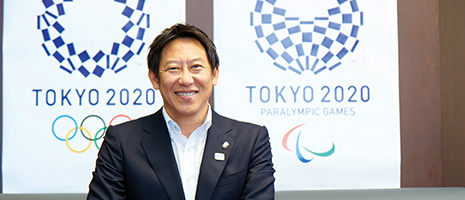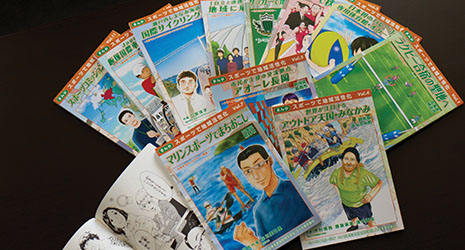Home > Highlighting JAPAN > Highlighting Japan June 2018 > Regional Revitalization through Sports
Highlighting JAPAN


Revitalizing Regional Communities and Economies through Sports
The Japan Sports Agency (JSA) focuses on revitalizing regional communities and economies through sports. We ask JSA Commissioner Daichi Suzuki what his agency has been doing since it was created in 2015.
How are sports helping to energize regional communities and economies?
One of the agency’s big themes is revitalizing regional communities and economies around Japan through sports. That’s because playing sports makes everyone healthy in body and mind, and also cuts down on medical costs, which makes the whole country happier and healthier. We also showcase the sports each region is known for, tying into sports tourism where people take trips to enjoy the sports of a particular region. Bringing in lots of people—including inbound tourists—energizes regions and has a positive economic effect on them as well.
Is that kind of renaissance through sports possible in every region?
Yes. Every region in Japan is blessed with the natural resources and features needed for sports and outdoor activities—rivers, mountains, the sea and even dams. Even in places where people think, “There’s nothing in this town,” no traffic lights, for instance, mean it would be a great place to hold a marathon. And there are so many different kinds of sports that whatever the region has, it’s suited for something. For example, the city of Miyoshi in Tokushima Prefecture has a white water river gorge, so it hosted the World Rafting Championship in 2017. The event attracted ten thousand spectators and received worldwide attention. Opportunities like that are entirely possible anywhere.
In addition, Japanese martial sports such as judo and Japanese archery are invaluable assets. Many people outside Japan are intensely interested in these sports, and when they visit Japan they want to observe activities at student clubs or experience them firsthand in a class. It’s also essential to play up the sports tourism angle for Japanese martial sports to appeal to those people.
What changes have occurred in the sports world since the JSA was founded in 2015?
The phrase “sports tourism” has been gradually become pervasive, but we’re still just getting started. We’ve started the Council for cooperation between the public and private sectors to increase demands for sports tourism, and receive good feedback and opinions from businesses such as sports manufacturers and travel agencies. The JSA’s role is to make it easier for these businesses to implement sports tourism, both by expanding the limits of what’s possible and by providing guidance and information.
We’re also encouraging local governments by sending out examples of successful sports tourism stories. One example is a series of manga booklets we’ve created called Manga Casebook: Regional Revitalization through Sports. We researched a dozen success stories from around the country, and had each one illustrated by a local student studying drawing at an art school in the region where the story took place.
What are your hopes for the agency?
Well, first we have the Rugby World Cup in 2019, followed by the Tokyo Olympic and Paralympic Games in 2020, and then the Kansai World Masters Games in 2021. That’s several huge international sports events occurring in Japan three years in a row. The Rugby World Cup will span 44 days, take place at 12 venues all over Japan, and is expected to attract two million spectators, 400,000 of whom will be visiting from overseas.
The Olympics and Paralympics the following year will also be huge events with a major economic impact. The World Masters Games—an international competition that amateur athletes over thirty can participate in—draw an average of forty thousand participants. So we’re aiming to take advantage of 2019 to 2021 as the “Golden Sports Years” to make Japan a comprehensive sports-focused society, and planning all sorts of activities to get people nationwide excited about it.
© 2009 Cabinet Office, Government of Japan






